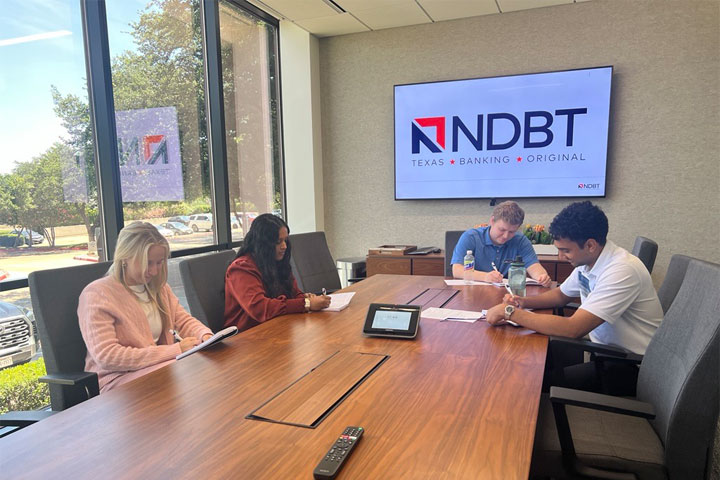World Elder Abuse Awareness Day
Factoid
Roughly 20 percent of older Americans fall prey to financial exploitation losing on average $120,000, or a collective $3 billion every year, according to a study from the AARP Public Policy Institute.
Be on the Lookout for Elder Financial Abuse Scams
It’s an all too unfortunate reality that older adults are attractive targets for financial exploitation because they tend to possess more wealth than other potential victims. This is wealth that in many instances has been accumulated over their lifetime through hard work and conscientious saving.
At NDBT, we’ve taken a proactive approach to detecting and preventing financial fraud against older customers through routine employee training and the use of technology to spot red flags and report suspicious activity to authorities. Additionally, we sponsor the Senior Housing Crime Prevention Foundation. Their programs protect and educate residents and staff at local senior housing facilities on how to prevent elder financial abuse.
NDBT Officers are dedicated to the well-being and protection of all our customers, especially those who may be vulnerable to elderly abuse. Whenever we encounter customers who are being cared for by family members or caregivers seeking to be added to their accounts, we take the time to educate them about the potential consequences of such actions. We thoroughly explain the risks involved and explore the reasons behind their decision, ensuring they understand the implications. Moreover, we offer assistance and guidance in handling various scenarios, providing solutions that prioritize the best interests of our customers. At NDBT, safeguarding our customers from potential abuse is a top priority, and we strive to provide them with the support and resources they need.

With World Elder Abuse Awareness Day happening on June 15, we wanted to provide our nation’s seniors and their family members with tips to guard against financial exploitation.
Medicare/Health Insurance Scams
It is difficult to imagine that someone could prey on those in need of medical assistance, but unfortunately, Medicare fraud is all too common. Criminals are posing as Medicare or medical supply representatives to obtain personal information or provide bogus services and using the information to bill Medicare or assume an identity to perpetrate fraud.
Another COVID-19 related scam centers around a FEMA program to assist with funeral expenses. While this is a legitimate program, and you can reach out to FEMA to apply for these benefits, citizens should be mindful that:
• FEMA will not contact you until you call or apply for assistance.
• The government won’t ask you to pay anything to get this benefit.
As a good rule of thumb never share personal or financial information with anyone who contacts you out of the blue.
Zoom Phishing Emails and Internet Fraud
At the onset of the pandemic con artists registered thousands of fake Zoom-related internet domains to send phony emails, texts or social media messages to trick consumers into clicking on bogus links related to purported “account suspension” or “meeting” notices. Those that took the bait inadvertently downloaded malware (malicious software) on their computer, exposing their personal information to potential use by fraudsters.
Internet scammers are also known for sending fake text messages alleging trouble with an internet account, credit card, bank account or shopping order. Many even contain realistic looking logos to lure you into clicking on a link and divulging personal information.
To limit your exposure, avoid clicking on links from unsolicited emails or texts. If you suspect a problem with an account contact us directly.
Telemarketing/Phone Scams
Seniors schooled in etiquette may frown upon “hanging up the phone” or simply saying “no” to unsolicited calls, but it also leaves the door open to criminals posing as company representatives. Three notable examples include:
1. The pigeon drop where con artists pretend to share found money in exchange for a “good faith” payment drawn from the contacted person’s bank account.
2. The fake accident ploy where con artists create a false narrative that a loved one has been injured in an accident and needs money for medical expenses.
3. Charity scams where con artists solicit funds on behalf of a charity for which they are not affiliated with or is not legit.
Remember, if it’s too good to be true it probably is. If you want to give, go directly to the source. And if you are worried about a friend or family member, verify the information with them directly.
Scams are always changing. This year’s pandemic fraud will be replaced by a new and creative scheme next year. The Federal Trade Commission has a “scam alert” page with information about the ever-changing ways that scam artists target consumers, at www.consumer.ftc.gov/scam-alerts.
And as trusted stewards of our customer’s financial data, feel free to reach out to NDBT. Our community bank employees are trained on the latest fraud prevention techniques. They can help you spot potential scams and take appropriate measures to protect your account if you suspect you have been a victim of financial fraud.







